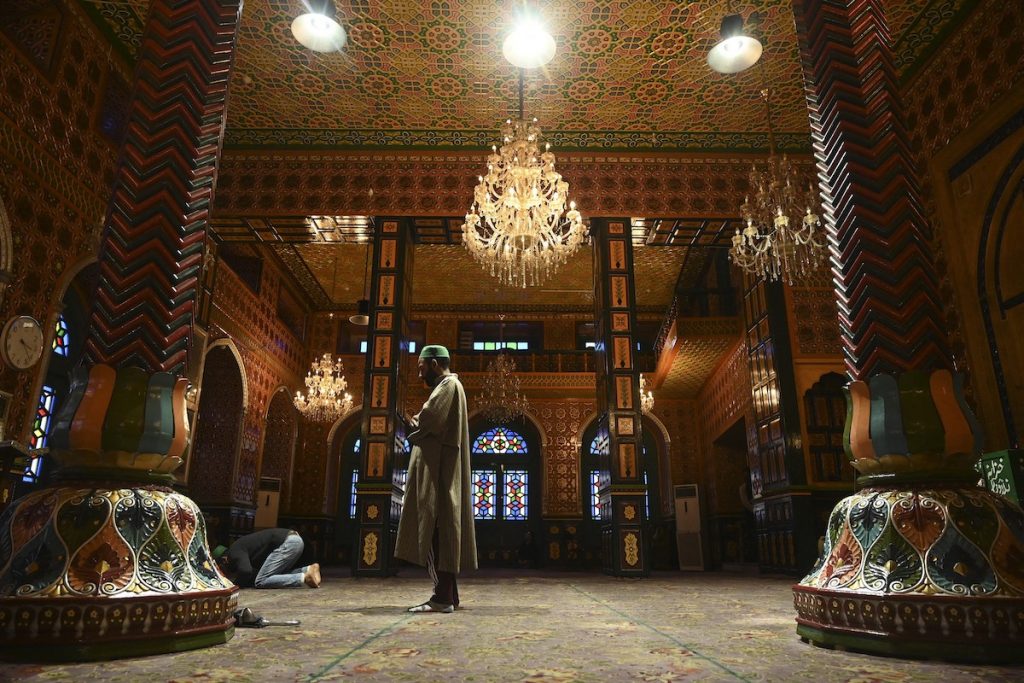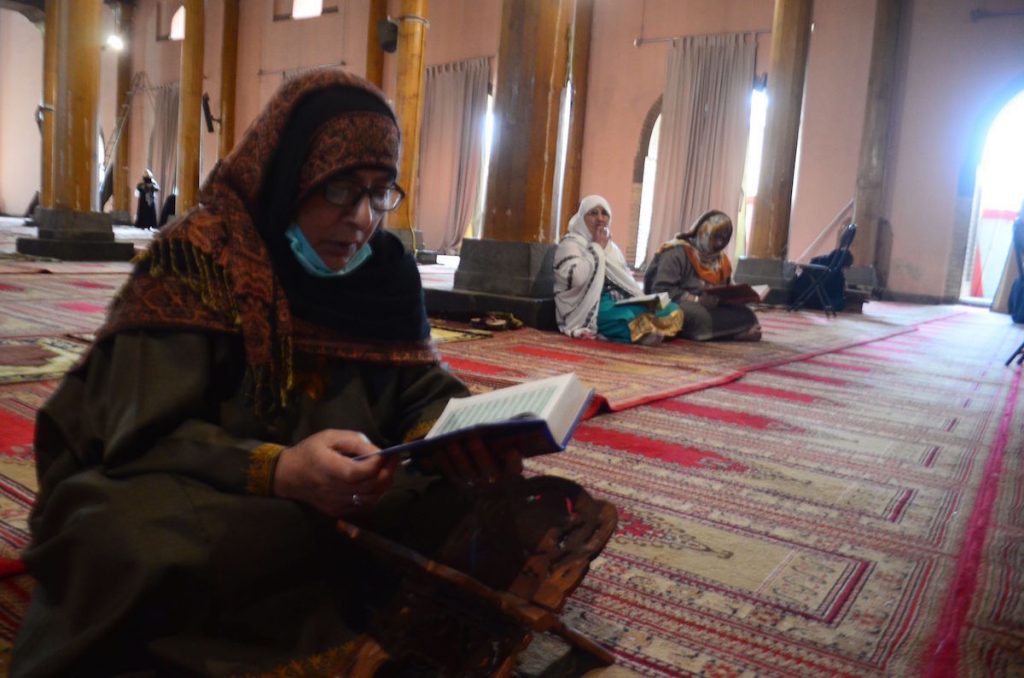
Gone are the days when markets bustled with activity during the Muslim holy month of Ramadan in Kashmir, India’s only Muslim majority region.
With a spike in COVID-19 cases, the region’s Muslims are preferring to stay indoors and avoid taking part in the congregational prayers, known as Tarawi, which usually occur during the evening hours.
The number of active cases in the region shot up to more than 14,000 by April 18. A month before it was only 600. Schools and universities in the region have also been shut.
Mohammad Younis Khan who owns a garment shop in the old city of Kashmir’s capital Srinagar said before the COVID spike he was expecting a good business during Ramadan.
“It seems that the festivities for the month are gone. Buying new clothes during the month used to be a norm, now it looks like a thing of the past,” Khan said, adding that lockdowns last year likewise hit local businesses.
Kashmir’s largest mosque — Srinagar’s Jamia Masjid — is also seeing a limited number of visiting devotees.
Ghulam Hassan Sheikh, a regular visitor to the mosque, said that the people are too afraid of the virus and don’t want to gather around others in a bid to limit the chance of becoming ill.
“They are not wrong in a way, everyone loves to live. The situation is pretty precarious and getting out of control. Allah must help us during these troublesome times,” Hassan said.
Hassan said the mosque’s management canceled evening and morning prayers during Ramadan but people living nearby were allowed to pray in limited numbers. “We used to witness more than 10,000 people participating in the evening congregational prayers. This time, the number is less than a hundred,” Hassan added.
Vendors from neighboring markets have likewise been impacted.
Snack vendor Mushtaq Ahmad Dar said he had never expected a Ramadan to be such a somber affair.
“Even during protests and strikes which are quite normal here, the situation was never like this,” Mushtaq said.
“After protests, people used to come in droves for prayers and resume their lives normally but at present, I am finding it strange that people aren’t coming for prayers to the mosques in large numbers,” he said.
“Also, they are too terrified to buy stuff from the local vendors like us,” he added.
Another vendor, Nadeem Qadir, who sells Islamic books on a cart in Kashmir’s Lal Chowk area, has seen little business during Ramadan.
“Hardly anyone is turning up. I get a customer or two in a day. I don’t know what I will do what all my books I bought before the month,” Nadeem said.
Muslim cleric Moulvi Iqbal Ahmad from central Kashmir’s Ganderbal said that praying in homes and not coming to mosques during a pandemic is absolutely permitted in Islam.
“Attending congregational prayers is an unavoidable obligation of Muslims,” the cleric said. “However, our prophet — peace be upon him — has permitted people to pray at their homes when there is a pandemic and risk of getting infected. Therefore, prayers at home and not coming to mosque is not objectionable in any manner.”

Another cleric, Ishfaq Ahmad said people attending prayers at his mosque have been asked to strictly adhere to anti-COVID measures.
“In a way, it is good that not many people are turning up. The situation otherwise would have been untamable and worrisome,” Ahmad said. “It is good that people understand that this virus is real, and they must take proper care against it.”
Ramadan is observed by Muslims worldwide as a month of fasting. It is viewed as the most sacred and most revered of all months for followers of Islam. It lasts 29 to 30 days, from one visual sighting of the crescent moon to the next in the ninth month of the Muslim calendar.
For Muslims the month is a commemoration of the first revelation of the Quran.
The last 10 days of the month are celebrated with joyfulness as all the important days occur during this time.
Source: Licas Philippines
0 Comments